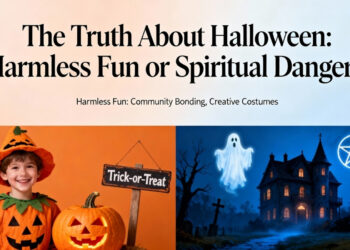No products in the cart.
Exploring Life After Death: A Mystery or a Proven Fact?
This post contains paid and/or affiliate links. I make a small commission at no extra cost to you. Please see our Privacy Policy.
In many cultures, people think about life after death in different ways. They have their own beliefs and rituals. These ideas show how diverse human thought is, making us curious about what comes next.
Eastern philosophies, like Hinduism and Buddhism, talk about rebirth. In Hinduism, the soul is reborn based on past actions. The goal is to reach Moksha, or freedom from the cycle of birth and death.
Buddhism also believes in a cycle of death and rebirth. But, through mindfulness, one can escape this cycle and find Nirvana. Here’s a table to help understand these beliefs:
| Cultural Belief | Key Concept | End Goal |
|---|---|---|
| Hinduism | Reincarnation based on karma | Moksha (liberation) |
| Buddhism | Samsara and spiritual enlightenment | Nirvana (freedom from suffering) |
Abrahamic religions, like Christianity, Judaism, and Islam, also believe in an afterlife. But, their views differ. Christianity believes in a divine judgment after death, leading to Heaven or Hell.
In Judaism, opinions on the afterlife vary. Some believe in an afterlife, while others focus on living righteously now. This shows the diversity within the Jewish faith.
Islam teaches that all will face a Day of Judgment. Righteous deeds lead to paradise, while wrongdoings may result in punishment. These teachings guide moral behavior.
African traditions have unique views on the afterlife. Many believe in the active role of ancestors in their descendants’ lives. Rituals honor these ancestors, showing life’s continuation beyond death.
Indigenous cultures in the Americas also have interesting beliefs. They see death as a transformation, not an end. This view emphasizes harmony with nature and respect for all life.
Exploring these beliefs shows the richness of human thought on life after death. Different cultures offer various perspectives, guiding us through life. These beliefs give comfort and meaning in the face of mortality.
Looking into life after death raises big questions about existence and morality. Science may not have all the answers, but these beliefs help us find meaning and purpose.

They allow people from different backgrounds to seek peace and understanding.
The Science Behind Near-Death Experiences
Near-death experiences (NDEs) have always fascinated people. Those who have come close to death often share similar experiences. These experiences make us wonder: What really happens in these moments? Are they just hallucinations, or do they reveal something deeper about our existence?
Many NDEs involve a mix of biological, psychological, and cultural factors. To understand these experiences, we need to look at what happens in the brain when we face danger.
The body goes into fight-or-flight mode, releasing hormones like adrenaline and cortisol. These changes affect how our brain works.
During an NDE, people often feel peaceful, detached from their bodies, and see bright lights or tunnels. These feelings can be explained by brain activity:
- Oxygen Deprivation: Lack of oxygen can cause hallucinations, like feeling you’re floating above your body.
- Temporal Lobe Activity: This part of the brain handles sensory input. Too much activity can lead to vivid images and strong emotions.
- Endorphin Release: The brain releases endorphins during trauma. This natural painkiller can make you feel euphoric, like reliving your life.
Culture also plays a big role in how we see NDEs. In Western cultures, these experiences might be seen through a Judeo-Christian perspective.
In Eastern cultures, they might be viewed as reincarnation or karma. These views help people understand experiences that are hard to explain.
| Experience Type | Common Elements | Cultural Interpretation |
|---|---|---|
| Life Review | Flashback of one’s life events | Judgment or reevaluation of actions |
| Feeling of Peace | Calmness and tranquility | Heavenly feeling or acceptance |
| Tunnel Experience | Moving through a dark tunnel towards light | Transition into the afterlife |
| Interactions with Beings | Meeting deceased loved ones or spiritual figures | Guidance or reassurance from the departed |
Scientists have been studying NDEs for years. A 2014 study by the University of Southampton looked at nearly 2,000 cardiac arrest patients. It found that 10% of survivors had NDEs, suggesting consciousness might exist outside the brain during death.
But not everyone believes in NDEs. Many scientists think they can be explained by brain responses and distorted memories. This debate is important because it challenges both science and spirituality.
Thinking about NDEs makes us question life and death. Whether they’re scientifically proven or spiritually significant, these experiences make us think about existence. They ask us to consider consciousness and life after death.
We need to keep talking about NDEs as more people share their stories. Researchers are working to understand these experiences, respecting their personal nature.
As we learn more, we gain insights into human consciousness and the mystery of death.
Historical Accounts of Life After Death: Myths and Realities
The idea of life after death has fascinated humans for centuries. Stories and beliefs about it vary across cultures and time.
These tales raise big questions about existence, morality, and our place in the universe. Let’s look at some of these stories and their importance.
Myths from Ancient Civilizations
Many ancient civilizations had myths about life after death. Here are a few examples:
- Anubis in Ancient Egypt: Anubis, the jackal-headed god, guided souls to the afterlife. The Egyptians believed in a judgment process where the heart was weighed against a feather to decide the fate of the deceased.
- Fields of Elysium in Greek Mythology: The Greeks envisioned an afterlife where the virtuous enjoyed eternal bliss in the Elysian Fields. Those less virtuous faced a harsher fate in the Underworld.
- Valhalla in Norse Mythology: For the Norse, warriors who died bravely in battle were welcomed into Valhalla, a glorious hall ruled by Odin, where they would feast and prepare for Ragnarok.
Religious Perspectives on Afterlife
Religions around the world have rich stories about life after death. These stories influence beliefs and practices. Here’s a look at a few major faiths:
- Christianity: Christians believe in heaven and hell, with eternal life in heaven granted to those who have faith in Jesus Christ and good works in their lives.
- Buddhism: Buddhism teaches about rebirth and karma, where actions in this life determine the form of existence in the next, highlighting the cyclical nature of life.
- Hinduism: Similar to Buddhism, Hinduism introduces the concept of reincarnation, where the soul is reborn into different bodies based on karma until it achieves moksha, or liberation.
Modern Accounts and Near-Death Experiences (NDEs)
In recent decades, many have reported near-death experiences. These experiences challenge science and spirituality. They often share common themes:
- Feelings of peace and detachment from the body.
- Traveling through a tunnel or toward a bright light.
- Meeting deceased loved ones or spiritual beings.
While skeptics attribute NDEs to brain chemistry, many describe them as transformative. They provide profound insights about life and death.
Scientific Investigations into Life After Death
Researchers have explored life after death scientifically. Notable studies include:
| Study | Findings |
|---|---|
| The AWARE Study | Examined NDEs in cardiac arrest patients; found consistent elements among experiences. |
| Dr. Sam Parnia’s Research | Focused on consciousness during clinical death, suggesting awareness may persist. |
These studies reveal a complex mix of consciousness and death experiences. They spark debate about the afterlife.
Cultural Variations and Adaptations
Cultures have their own afterlife beliefs, reflecting their values and struggles. Some examples include:
- Day of the Dead in Mexico: This holiday honors deceased loved ones, celebrating their lives with offerings and joyous remembrance.
- Ancestor Worship in African Cultures: Many African traditions emphasize ancestral spirits that guide and protect the living.
: A Mystery Yet to be Unraveled
The question of life after death is a deep mystery across human history. It spans religious and cultural backgrounds. The allure of understanding what comes next drives exploration and discourse.
Whether myths, religions, or modern experiences, the pursuit of such knowledge reflects our deepest hopes and fears about existence and the unknown.
The Role of Spirituality in Understanding Afterlife Concepts
Exploring our existence often leads us to spirituality and afterlife concepts. Many cultures and belief systems see spirituality as key to understanding what happens after we die.
The interplay between spirituality and afterlife beliefs sparks curiosity and deep reflection on life’s mysteries.
Spirituality is a wide range of beliefs that help us connect with something beyond the physical world. It may involve practices like meditation, prayer, or rituals that foster peace and understanding.
By examining spirituality, individuals can find comfort and guidance in navigating life’s ultimate question: what happens after we die?
Different spiritual traditions offer unique perspectives on the afterlife. Here are a few prominent beliefs:
- Reincarnation: In many Eastern philosophies, such as Hinduism and Buddhism, the soul is believed to be reborn into new forms based on past actions.
- Heaven and Hell: Western religious traditions often teach that one’s actions during life determine their eternal destination in heaven or hell.
- Spiritual Continuity: Some belief systems promote the idea that the spirit continues to exist in other forms, contributing to the universe in different ways.
- Universal Consciousness: Certain modern spiritual views suggest that upon death, individuals return to a collective consciousness, merging with a greater whole.
Spirituality also plays a big role in personal experiences and stories about life after death. Many people have near-death experiences (NDEs) that change how they see existence. These experiences often include:
- A sense of peace and separation from the physical body
- Encounters with deceased loved ones or spiritual beings
- Bright lights or tunnels that lead to profound insights
- A feeling of unconditional love and acceptance
These accounts suggest that consciousness might keep going even after the body dies. While some doubt these experiences, many find them key in shaping their spiritual views of the afterlife.
Through spirituality, people often seek deeper meanings in these experiences. Here are some ways spirituality helps understand afterlife concepts:
- Framework for Understanding: Spirituality offers a structured belief system that helps individuals interpret their experiences, fear, and hopes regarding death.
- Community Connection: Engaging with spiritual communities allows individuals to share experiences, providing support and fostering a sense of belonging.
- Personal Growth: Exploring spirituality often leads to self-discovery and personal growth, enabling individuals to reevaluate their lives and their relationships with others.
- Preparation for Death: Spiritual practices can prepare individuals mentally and emotionally for end-of-life transitions, reducing anxiety about dying.
Engaging in spiritual practices may also improve overall well-being. It can help reduce fear and anxiety about death. Some common practices include:
| Practice | Benefits |
|---|---|
| Meditation | Promotes relaxation, clarity, and a sense of connection to the universe. |
| Prayer | Provides comfort and fosters a deeper connection with a higher power or the universe. |
| Rituals | Helps individuals honor loved ones and create meaning around death. |
| Mindfulness | Encourages living fully in the present, reducing anxiety concerning past or future. |
Exploring the role of spirituality in afterlife concepts is important. Personal experiences and culture shape our views of what happens after death.
Seeing the variety of beliefs can offer insight into how humans seek understanding.
Whether you believe in spiritual views or scientific reasoning, the quest to understand life after death is personal. By reflecting on your beliefs and exploring different spiritual traditions, you may find peace about existence beyond this life.
Psychological Effects of Believing in Life After Death
The idea of life after death has fascinated humans for ages. It affects how people live, deal with loss, and see their existence. Let’s look at the psychological effects of believing in life after death.
Understanding the Belief
People believe in an afterlife for many reasons. Some find comfort in the idea of being with loved ones again. Others see it as a way to understand life’s purpose. This belief is key in how people deal with death and dying.
Positive Psychological Effects
Believing in life after death can positively affect mental health. It can:
- Reduce anxiety by showing that death is not the end. This comfort lets people live more fully, without fear holding them back.
- Help people cope with grief better. Knowing their loved ones continue on can bring comfort during mourning.
- Make people more resilient. Believing in a greater purpose beyond life encourages overcoming challenges.
Negative Psychological Effects
But, such beliefs can also cause problems:
- Lead to fear of judgment. Many believe they’ll be judged after death, causing anxiety over making the right choices.
- Act as an escape. Relying too much on an afterlife can stop people from facing real-life issues.
Life Events and Beliefs
Personal experiences greatly affect how beliefs impact us. Let’s look at some common life events and their effects:
| Life Event | Common Psychological Responses |
|---|---|
| Death of a Loved One | Belief in life after death grows, leading to more spiritual exploration. |
| Near-Death Experiences | Strong belief in life after death, leading to a new perspective on life. |
| Crisis Moments | Beliefs in the spiritual world grow, leading to deeper questions. |
Cultural Influences
Your culture shapes your beliefs about life after death. Different cultures have unique views, affecting your mental health. For example:
- Religious Perspectives: Many religions offer comfort and structure about death. These beliefs can strengthen community and feelings of belonging.
- Secular Views: Non-religious views can lead to existential questions. But, they can also give a sense of freedom and self-determination.
Developing Personal Beliefs
Exploring life after death beliefs is important for emotional well-being. Think about:
- What experiences have shaped your beliefs? Consider personal loss, philosophical readings, or spiritual encounters.
- How do your beliefs affect your daily life? Do they bring peace, motivation, or questions that drive you to seek answers?
Beliefs in life after death have complex effects on mental health. They include both positive and negative aspects. Exploring these beliefs can deepen our understanding of existence and the mysteries of life.
Conclusion
The idea of life after death is filled with different views from cultures, science, and history. Each culture offers its own way to see what happens after we die. This shows how traditions help us understand what might be next.
Science also gives us clues, like near-death experiences. These experiences mix psychology and spiritual thoughts. They help us see beyond the ordinary.
History adds more to the story, mixing myths with real events. These stories show our deep wish to know what comes next. Spirituality guides many, bringing comfort and hope.
Talking about the afterlife can bring people together. It helps ease fears about dying. Believing in life after death can also make us feel better mentally.
The search for answers about life after death is more than just finding facts. It’s about finding deeper meanings in our lives.
Whether it’s a mystery or a real possibility, it keeps us curious and helps us understand what it means to be human. Your beliefs and experiences are key to this journey.

















